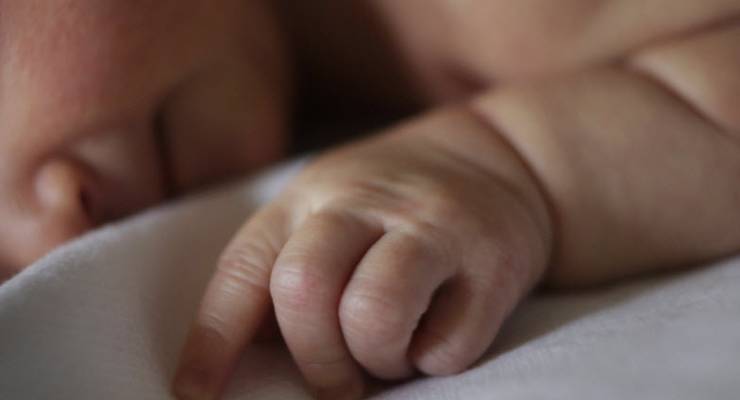
Rachael Hickinbotham, a Sydney-based obstetrician, is dealing with many new and difficult challenges in the age of the coronavirus.
The biggest change that I have found with the use of personal protective equipment (PPE) is the use of a mask in the second stage of labour in a non-COVID-19 positive patient.
A first-time mum can take up to two hours to push out her baby, the second stage of labour. It is at this time, during the expulsive efforts, that there is the most risk of respiratory droplets, hence why wearing a mask is important to the midwife and the doctor.
It must be very difficult for the patient to see her caregivers masked faces. She misses the human interactions of nonverbal cues and encouragement during what should be one of the most amazing moments of her life.
There have been many changes to the way we are all consulting. Because the definition of close contact is contact greater than 15 minutes, we are all trying to limit our consultation times to this. I have found this very difficult for my first consultation with a new patient. Typically, I will spend up to 40 minutes with a patient and her partner.
This is important for them to not only gain understanding of how I like to manage the pregnancy, perform a physical examination and do an ultrasound of their baby, but it helps us to start to form a relationship and get to know each other.
This building of rapport is a core part of the doctor-patient relationship and it is the part I love the most. Having to do this in 15 minutes is really hard. I have been calling patients beforehand and going through as much as I can, so that they can feel calm and know that I am looking after them throughout their exciting journey.
In an effort to keep in-hospital traffic down, most partners are also not coming to the consultations. This has also been hard for them. I have tried to keep them included by encouraging FaceTime and Zoom sessions. It is hard to practise obstetrics over a Zoom call. There are some visits that can be via Zoom, but to really know how things are going and to pick up any complications, you need to see and examine patients.
I have tried to make it clear to all of my patients, that labour wards are still open 24 hours a day, seven days a week, and if they have any concerns, they still need to come in.
Certainly, the literature that has come out early on has suggested that pregnant women aren’t at greater risk from COVID-19 than other groups, but I think more research needs to come out first. I receive daily updates from many of the international peer-reviewed journals. My general feeling is that we still need more information.
Parents report a lot of concerns about having a child at times like this, beyond the obvious one of getting the virus and giving it to their unborn child.
There’s the potential of their partner not being able to be with them in labour, not being able to have grandparents, friends and extended family visit them in hospital or at home, feeling unable to “celebrate” this special event in their lives, not being able to attend birth classes, not having help in the community when they go home. There’s the isolation and risks of getting depression, and not having their partner at their antenatal visits.
I have put great effort and care into thinking about what it would be like to be a new pregnant patient during this pandemic and also how hard it would be to take home a newborn into isolation. I decided to give my patients credible links to resources that I thought would help them during this time.
One of my main concerns is the increase in perinatal anxiety and depression that this pandemic will leave in its wake.
Dr Rachael Hickinbotham is a Sydney Obstetrician Gynaecologist with over 20 years professional healthcare experience and a fellow of the Royal Australian and New Zealand College of Obstetricians and Gynaecologists.







Crikey is committed to hosting lively discussions. Help us keep the conversation useful, interesting and welcoming. We aim to publish comments quickly in the interest of promoting robust conversation, but we’re a small team and we deploy filters to protect against legal risk. Occasionally your comment may be held up while we review, but we’re working as fast as we can to keep the conversation rolling.
The Crikey comment section is members-only content. Please subscribe to leave a comment.
The Crikey comment section is members-only content. Please login to leave a comment.